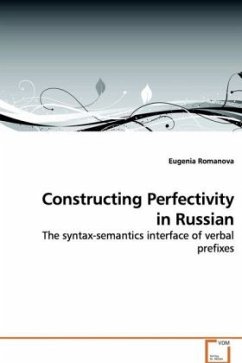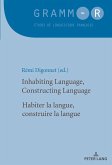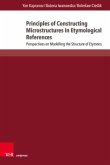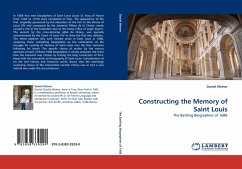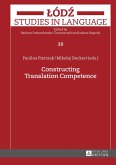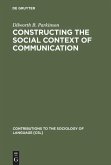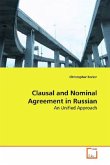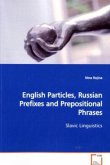This work deals with one particular way of deriving
perfective verbs
in Russian, namely, prefixation.
Prefixes are not a uniform morphological class; they
are divided into
lexical and superlexical. The former readily attach
to transitive and
unaccusative verbs, whereas the latter mostly
co-occur with
unergative verbs. However, it is not immediately
clear what factor is
crucial in selecting a type of prefix: the argument
structure or the
aspectual characteristic of an imperfective verb it
attaches to.
Motion verbs, which also come in two varieties, help
to clarify the
mechanism at work. Both types of motion verb are
imperfective.
This split in imperfectivity seems to determine
quantificational
properties of such superlexical prefixes as
accumulative na- and
distributive pere-, discussed and analysed here. The
proposed
analysis can be extended to other superlexicals as well.
In general, this work is an attempt at creating a
multidimensional
picture of verbal prefixation in Russian, which is
just a language-
specific representation of the universal phenomena on
the syntax-
semantics interface: resultative predication,
argument structure,
directionality and aspect.
perfective verbs
in Russian, namely, prefixation.
Prefixes are not a uniform morphological class; they
are divided into
lexical and superlexical. The former readily attach
to transitive and
unaccusative verbs, whereas the latter mostly
co-occur with
unergative verbs. However, it is not immediately
clear what factor is
crucial in selecting a type of prefix: the argument
structure or the
aspectual characteristic of an imperfective verb it
attaches to.
Motion verbs, which also come in two varieties, help
to clarify the
mechanism at work. Both types of motion verb are
imperfective.
This split in imperfectivity seems to determine
quantificational
properties of such superlexical prefixes as
accumulative na- and
distributive pere-, discussed and analysed here. The
proposed
analysis can be extended to other superlexicals as well.
In general, this work is an attempt at creating a
multidimensional
picture of verbal prefixation in Russian, which is
just a language-
specific representation of the universal phenomena on
the syntax-
semantics interface: resultative predication,
argument structure,
directionality and aspect.

